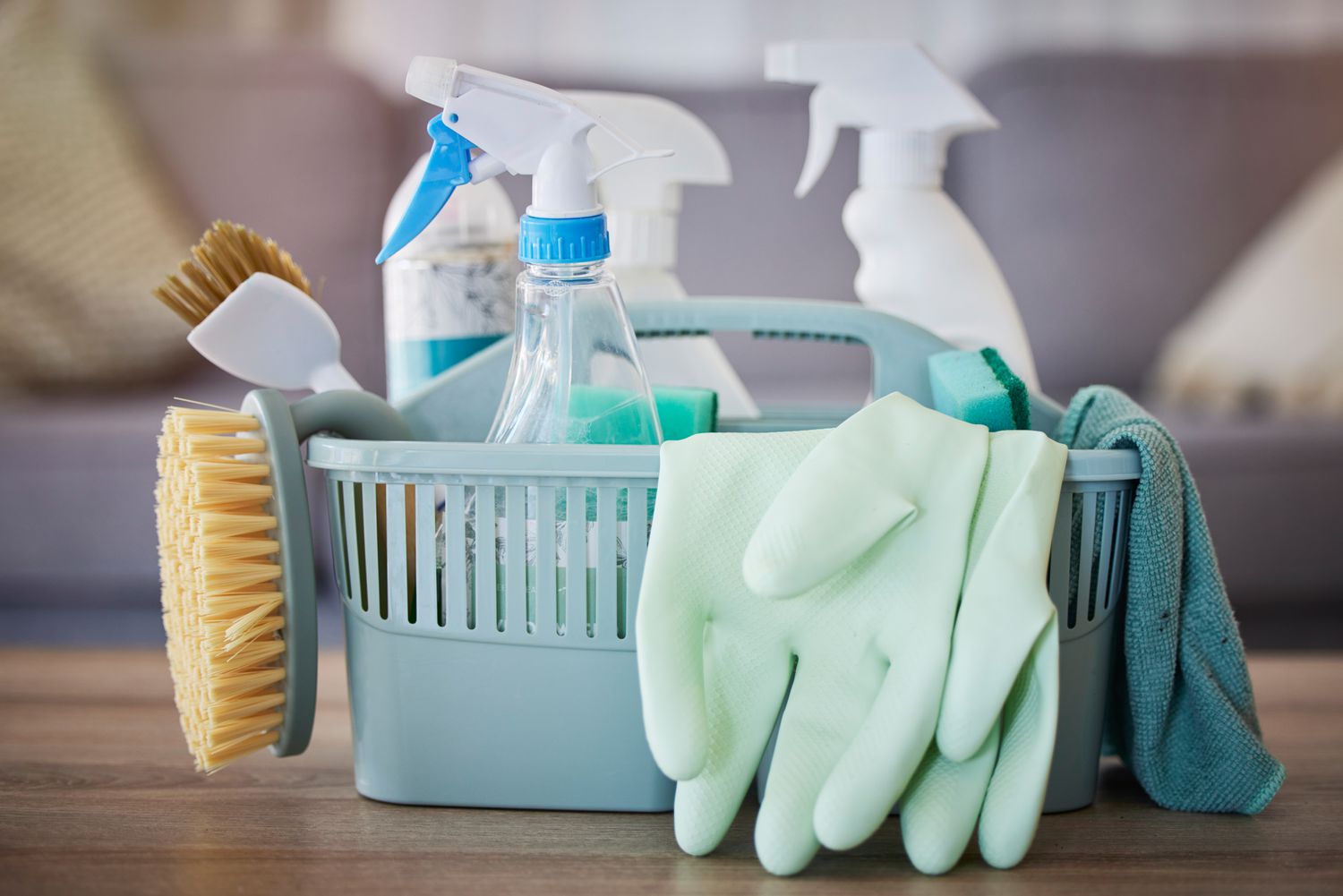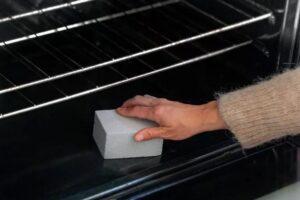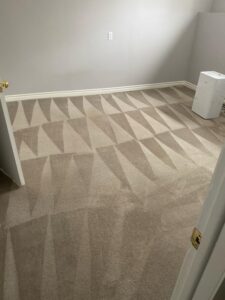
:max_bytes(150000):strip_icc()/GettyImages-1469991492-c6a76faa77a043c59c85489f000a2957.jpg)
Whatever the spill or stain, you can handle it—these days, your cleaning and sanitizing kit is always stocked and ready to go. But where should you keep your product arsenal? There are a few things to consider when storing cleaners—including frequency of use and whether or not you have little ones in the house.
From there, think about your home’s storage capabilities. “For instance, does the house have a utility room, or is it a smaller apartment with just some space under the sink?” says Malaika Lubega, a professional organizer, interior decorator, and the owner of Huza Home Concepts. The answers to these questions will lead you to the optimal place to store any cleaning products, which might be in the garage, in a storage closet, or, yes, beneath the kitchen sink. It’s also important to think about how you store them.
Ahead, our experts explain everything you need to know about organizing and stashing every product with ease.
Keep Supplies Off the Floor
“As a mother and professional organizer, I advise my clients with curious little ones in the house to store cleaning supplies (like liquid cleaning products or detergent pods) in a cool, dry place—and out of the reach of children,” Lubega says. “All cleaning supplies should be kept off the floor. Storing items on wall-mounted shelves or utilizing useful vertical space in a utility room, laundry room, or even in the garage is a great place to start.” If you don’t have the space for any over-the-door storage, Lubega says that you can put your products in leak-proof, labeled containers in a secure cabinet.
Store Large Cleaning Tools in a Separate Closet
Cleaning tools should all be kept in the same area for easy use. “A separate closet near the kitchen or laundry area can be a storage area for bigger tools like vacuum cleaners, brooms, and mop buckets,” says Will Cotter, COO of FreshSpace Cleaning. “Then to make the most of your cleaning space, use wall-mounted organizers or over-the-door storage for brooms, mops, and dusters.”
Utilize the Garage (the Safest Place)
Marilee Nelson—a certified building biologist, environmental consultant, and the co-founder of Branch Basics—explains that outside storage spaces, like the garage, are arguably the safest places for your cleaning supplies. “People don’t realize that having toxic cleaners scattered throughout their home creates a low-level chemical soup that everyone in the family breathes and absorbs through the skin 24/7,” she says. “Products leach their ingredients into the air, many of which are harmful volatile organic compounds (VOCs).” She adds that removing these products from any of your dwelling areas will improve the air quality in your home and, in turn, your health.
Avoid Rooms With High Humidity
As Lubega mentioned above, keeping your cleaning supplies in a cool, dry environment is key. Nelson agrees, adding that you should steer clear of spaces with high humidity; if you don’t, a hazardous reaction could take place. In that vein, keep products away from ignition sources and hot pipes—and leave them in their original packaging, Nelson says. “While using these products, ensure the area is well-ventilated by opening windows or using fans. Then, return the cleaner to storage in an air-tight container so it doesn’t continue polluting the air your family breathes.”
Group Everyday Products Under the Sink
If under your sink remains dry, you can store everyday products there—or in another easy-access spot, says Lubega. (Just make sure that the space is secure if there are children in the house.) Her main tip? Products should stay together. “The best way to store your daily cleaning supplies—like all-purpose cleaners, dish detergents, sponges, stainless steel cleaners, and dish soap—is to corral these items together for easy access,” she says. Lubega suggests using simple, mobile vessels, like a lazy Susan, to further streamline your collection.
Designate a Cabinet and Use Clear Bins
If you are tight on space in general, place products in air-tight containers and store them wherever possible, like a specific cabinet. “Designate a dedicated closet or cabinet for cleaning supplies, away from food and personal care items,” says Charlie King of Greenway Carpet Cleaning Las Vegas. “This helps prevent cross-contamination and ensures a tidy appearance.”
If you go this route, make sure to use clear containers for your cleaning products—simply separating these chemical-laden products from other high-touch items will help you avoid any cross-contamination. “Store like-items together in clear bins, so you can see clearly what you have. Separate and label floor cleaners, bathroom cleaners, and kitchen cleaners; get these containers off the floor, onto shelves, or in a cabinet,” Lubega says.



